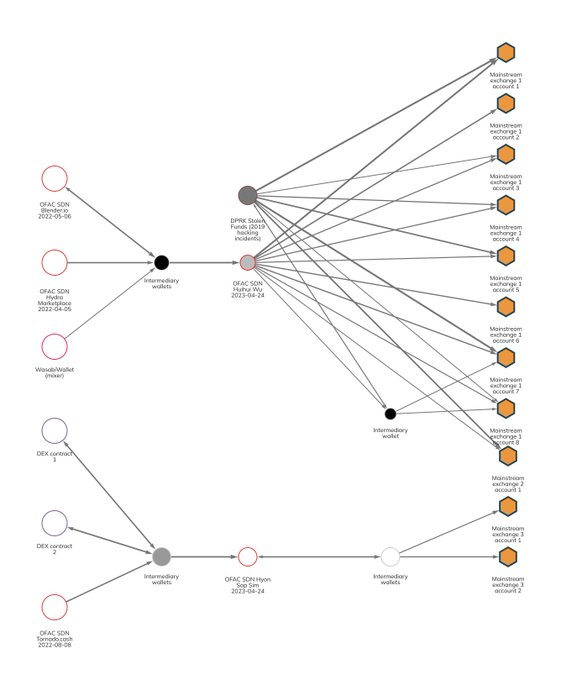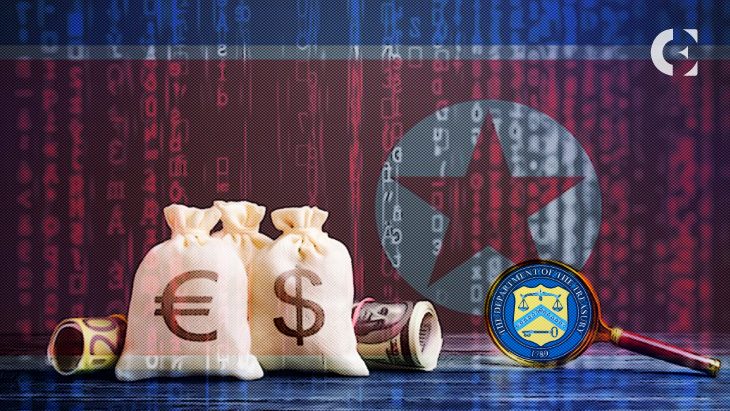- Chainalysis noted that OFAC sanctioned three Chinese individuals for DPRK cryptocurrency money laundering.
- Sim Hyon Sop was additionally charged by the Department of Justice (DOJ) for money laundering conspiracies.
- OFAC and DOJ’s announcement offers valuable insight into North Korea’s methods of laundering cryptocurrency.
On April 25, blockchain data platform Chainalysis reported that three individuals operating in China have been sanctioned by U.S. Department of the Treasury’s Office of Foreign Assets Control (OFAC) today for facilitating cryptocurrency money laundering on behalf of the DPRK.
The account further shared that the OFAC has identified the three sanctioned individuals as Wu Huihui (Wu), Cheng Hung Man (Cheng), and Sim Hyon Sop (Sim). In addition to being sanctioned by OFAC, Sim has also been charged by the Department of Justice (DOJ) for his alleged involvement in money laundering conspiracies.
Moreover, an announcement by OFAC and the DOJ revealed more information about North Korea’s methods of laundering cryptocurrency, particularly with regard to their actions after withdrawing funds from mixers. This new information offers valuable insight into the operations of North Korea’s illicit financial activities.
The reactor graph posted by Chainalysis illustrates how DPRK actors initially utilized mixing services to conceal the source of their illicitly obtained funds. They then collaborated with over-the-counter (OTC) traders to transfer the funds to more mainstream exchanges, where they could be converted into cash.

According to the blog published by Chainalysis, the Reactor graph shows how DPRK actors utilized mixing services and decentralized exchanges to conceal the origin of their illicitly obtained funds, which were then transferred to the wallets of Wu and Sim, as well as other OTC markets. Wu and Sim later converted the funds into fiat currency on mainstream exchanges. Additionally, the graph suggests a possible link between the individuals responsible for the 2019 hacks and those involved in laundering the stolen cryptocurrency.
Disclaimer: The information presented in this article is for informational and educational purposes only. The article does not constitute financial advice or advice of any kind. Coin Edition is not responsible for any losses incurred as a result of the utilization of content, products, or services mentioned. Readers are advised to exercise caution before taking any action related to the company.










